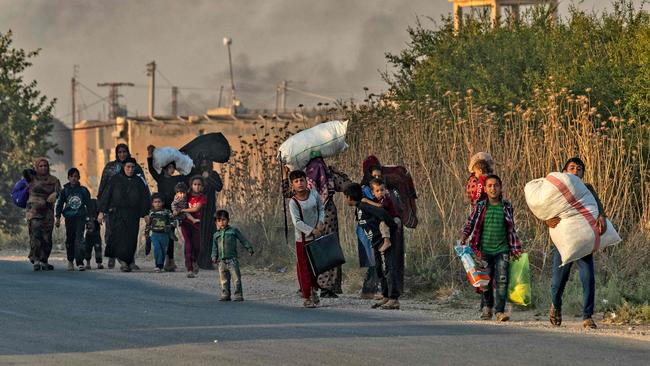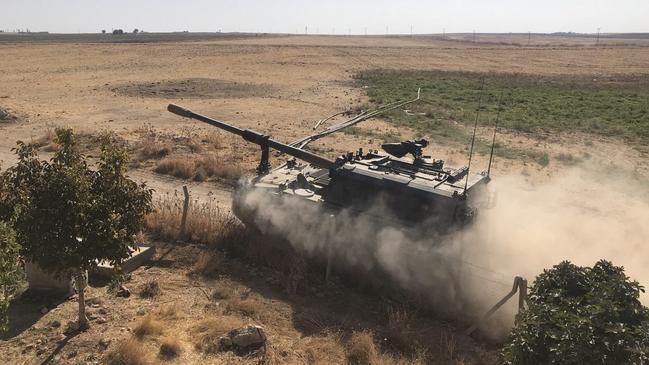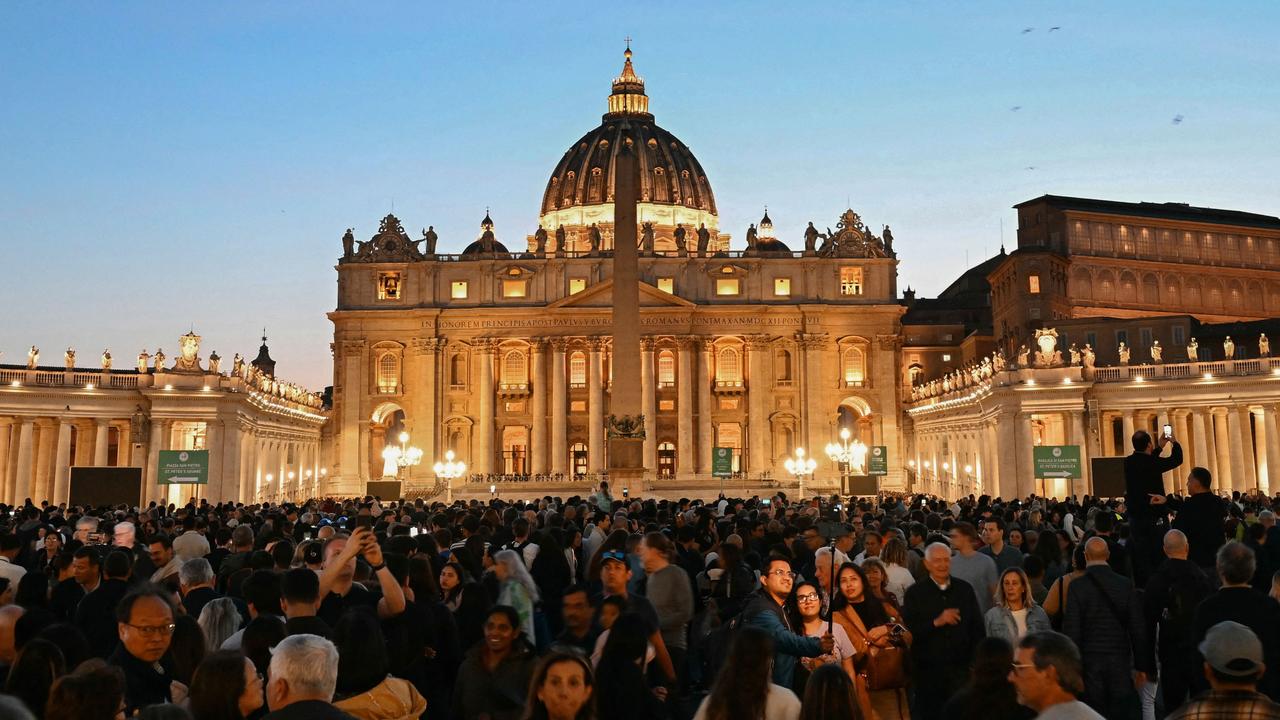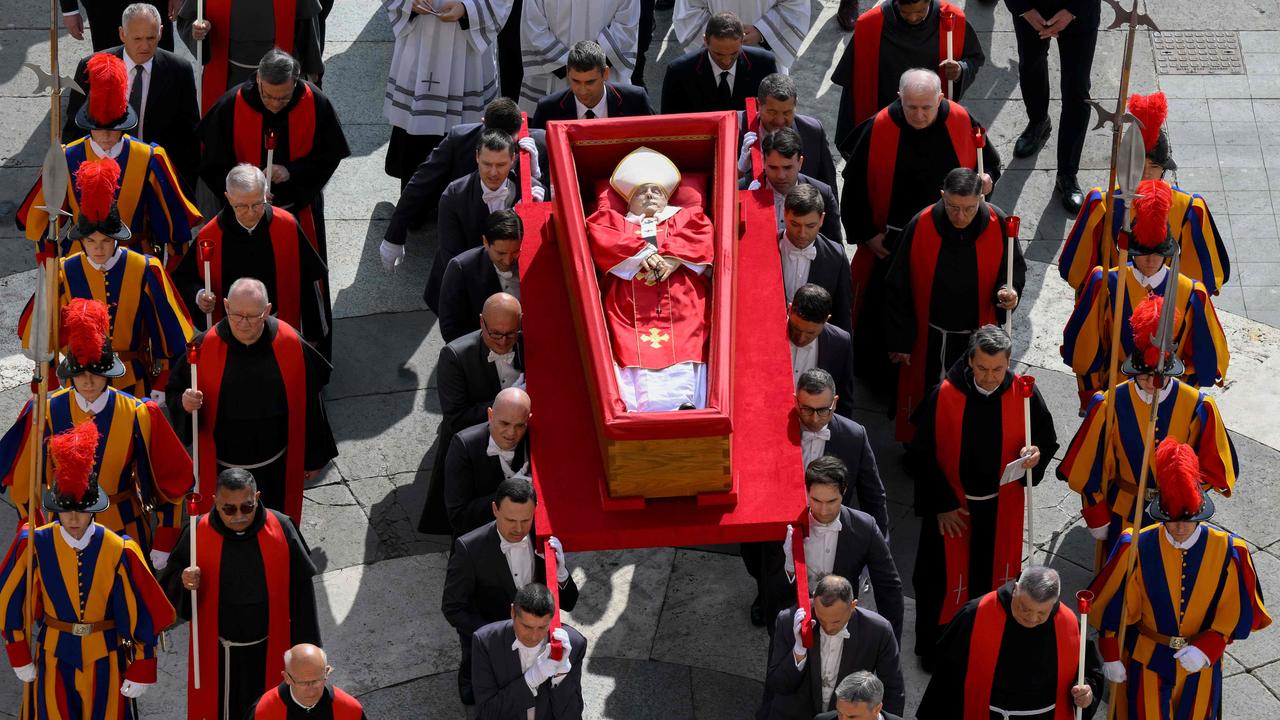
Probably the recent relative stability in Syria was never sustainable. Now, in any event, everything is going to be thrown in the air again in the most violent country in the world.
Donald Trump says he did not give Turkey’s Recep Tayep Erdogan a green light to invade northern Syria, and the assault is a “bad idea”. However, he did tell Erdogan the US would get out of the way and not impede his operation.
Many of Trump’s most impetuous actions come after telephone calls or meetings with strongmen whom he thinks he can do a deal with. Trump seems to share with Barack Obama the presidential delusion that the force of his personality, the chemistry he establishes with leaders, can change geo-strategic facts on the ground and the interests-based decisions of national leaders. It can’t.
Shocked by the domestic reaction, Trump subsequently said he would destroy the Turkish economy if Erdogan were to produce a catastrophic humanitarian situation.
Trump’s words on the Kurds themselves have ranged from respectful “we like the Kurds, they’re allies” to weirdly dismissive “they weren’t with us at Normandy”. It is there that Trump’s words have caused the greatest damage, in calling into question US commitment to US allies. Nonetheless, it is far too early to assume for sure the outcome will be as bad as we fear.
The strength of US political reaction against the offensive, and Trump’s demands it be carried out in as limited and least destructive a fashion as possible, give the Turks an incentive to go modest rather than big. However, there are so many players involved, and each is responding to such a range of motivations, that the worst certainly cannot be ruled out.
Turkey has three motivations.

One, it is host to 3.6 million Syrian refugees. So it wants to establish a safe zone in Syria, about 500km long and 30km deep, into which it can return most of these refugees.
Turkey is suffering an economic downturn and the presence of the Syrians is deeply resented by many Turks.
Two, it wants to prevent any cross-border fertilisation between the Kurdish separatist and terrorist outfit, the PKK, which operates on Turkish soil, and the Kurds in Syria, led by the YPG.
Three, it wants to prevent the consolidation of a Kurdish de facto state, which by its very existence would be a huge boost to Kurdish separatists inside Turkey.
The Kurds also have complex motivations. They are more diverse than shorthand accounts of their activities suggests.
However, there are three main communities. The Kurds in Turkey have been seriously oppressed, but the PKK is rightly labelled a terrorist group.
The YPG is not a terrorist group. It did the bulk of the fighting against Islamic State. It was one of the only forces operating in Syria for whom the defeat of ISIS was a top priority. Maybe 11,000 Kurdish fighters died. However, although the Syrian Kurds do not attack the Turks, they have close connections with their Turkish brethren.
The third Kurdish group is in Iraq and has the nearest thing to a de facto state, which is the most civilised statelet in the region by some distance. The Iraqi and Syrian Kurds have a long alliances with the West, and quietly a lot of co-operation with Israel.
The Kurdish-dominated Syrian Democratic Forces was the only group the US could trust in Syria so it ended up warehousing 12,000 ISIS prisoners while no one else knew what to do with them.
If the Turks take a relatively small chunk of their territory and don’t kill too many civilians, the Kurds might yet feel that the worst has been averted. A relatively bad sign is that some of the airstrikes have been beyond this zone.
US motivation is also complex. Trump is almost always behaving smarter than it looks. It’s not clear that is the case this time. He wants to bring US troops home, but the US has only about 1000 troops in northern Syria. At this stage it’s not clear any of them at all have been brought out of Syria. Rather, they’ve been moved away from the Turkish invasion path.
It’s just barely possible that to some extent the Turks have called the US bluff. No president, not just Trump but none you could possibly imagine, was going to go to war for the Kurds. Trump’s desire to pull his troops back home is understandable, but it is more than useful for the US to have influence at key geo-strategic points. One of the main vectors of US influence is its alliance with the Kurds.
If the US is seen finally to have betrayed and abandoned the Kurds completely, it will never be able to re-establish that influence. A thousand troops not directly involved in conflict seems a small ongoing price for Washington to pay for influence in Syria, which also means in the surrounding countries. The Kurds could be slaughtered, or they could yet be forced into an alliance with the regime of Bashar al-Assad.
The other big player is ISIS itself. Its ideology has not disappeared, nor are all its fighters dead.
ISIS sees the confusion of coming days as an opportunity to liberate thousands of its fighters and re-establish a guerrilla presence.
The other players, Assad, Iran, Russia, will all be looking at the new confusion as an opportunity.
Scott Morrison has handled the small but important Australian dimension of this crisis well. He has said and done three key things.
First, rightly, he has not criticised Trump and has correctly said that the deployment of US troops is a matter for Washington.
Second, Morrison and Foreign Minister Marise Payne have rightly criticised the assault. It is risky, destabilising and escalates violence. More than that, we appreciate the contribution the Kurds have made to the fight against ISIS.
Third, Canberra has revoked the citizenship of Australians who have identified themselves with ISIS and have dual citizenship.
This is a tough but reasonable move.
It is also tough but reasonable to take the view Australia will not put soldiers or officials at risk to rescue people who have intentionally gone to terrorist-infested areas with the aim of helping the terrorists. And yet any Australian children involved are completely innocent. If they end up in a territory where they can be accessed, Australia should help them.




Turkey has begun its assault on northern Syria with bombardments and troop movements, and in response we see again the signature song of Syria — women and children in refugee convoys, not knowing where they’re going, or why, just knowing that once more they must flee.